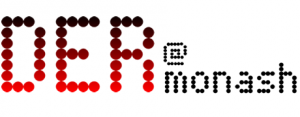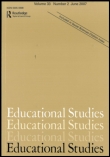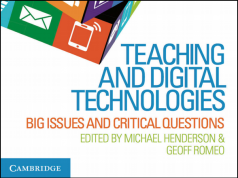Author:
Nicola F. Johnson
 In the current climate of the internet age which we now find ourselves a part of, increasingly we are dependent upon various types of ‘screens’. I’m not meaning LEDs, plasma or touch screens. I refer to the screens we access for digital information, for social media, for work, and for leisure interests at the very least. Many of us are quite happy to be constantly attached to this world wide web that we connect to via these screens. Some of us have FOMO – fear of missing out – if we do not keep in touch about what is going on. When I tell people I have written a book about Internet addiction, I usually receive a few titters because people realize and identify their dependence on or obsession with the Internet. However, the phrase and the phenomena remain to be something that we can problematize; for many people it is hard not to live their lives via digital platforms. This in itself is not a problem but detrimental behaviours and relationships can result from problematic Internet use which can lead to various disorders.
In the current climate of the internet age which we now find ourselves a part of, increasingly we are dependent upon various types of ‘screens’. I’m not meaning LEDs, plasma or touch screens. I refer to the screens we access for digital information, for social media, for work, and for leisure interests at the very least. Many of us are quite happy to be constantly attached to this world wide web that we connect to via these screens. Some of us have FOMO – fear of missing out – if we do not keep in touch about what is going on. When I tell people I have written a book about Internet addiction, I usually receive a few titters because people realize and identify their dependence on or obsession with the Internet. However, the phrase and the phenomena remain to be something that we can problematize; for many people it is hard not to live their lives via digital platforms. This in itself is not a problem but detrimental behaviours and relationships can result from problematic Internet use which can lead to various disorders.
Tara Brabazon has a new book entitled Digital Dieting: from information obesity to intellectual fitness (Aldershot: Ashgate, 2013). Here Brabazon argues we need to be digitally ‘fit’ in the ways we utilize and search for information, meaning that for example, we need to choosing the best platform in order to research particular types of information. We need to have more of a critical literacy on our part. However, I believe we also need to consider whether we are digital gluttons, by where we are missing out on the present because we are more concerned or worried about what is considered to be in cyberspace. That is why I have argued for research to be conducted from a social perspective and a societal perspective. Due to technology saturation, are we going to miss out and be depleted of such tactile and real-life, sensory experiences? We are designed to live life with all of our five senses, not just our visual one.
I am composing this blog post as I’m riding my horse and I’m speaking into my iPhone. I feel quite ‘pure’ today because it is 3:40pm and I am yet to check my emails or login to Facebook (currently I’m only working part-time which presents other types of conundrum. Emails and the Internet means that I can always be working). For me, this is a denial of something that I do every day; at the least it is a daily habit, but it could be considered compulsive. That is when it becomes a bind. I feel a degree of freedom that I haven’t checked those things. Smartphones give us conveniences like being able to dictate a very late blog post for the LNM research group, but they can be a constraint, and just like we need critical literacy in the ways we access information, we need to have a nuanced understanding of the demands upon our lives to live them digitally, and ideas of how to journey through the digital quagmire.
A number of questions come to mind. I don’t pretend they are original.
- Will we lose patience in our increasing demand for immediacy? Will our sensory capabilities and our competencies be lessened? Senses need to be educated and developed in order for them to be honed.
- What kind of society are we headed for when in a current 2013 scenario, a group of people are out for dinner and all they do is instead of chat to each other (in an analogue way), they connect with their digital followers by taking photos of food and commenting on others’ cyber relations.
- What about manners, decency and integrity? The proliferation of online postings means we can hate a lot easier and persecute more quickly. We can react publicly (e.g. tweet) in cyberspace and affect a vast audience. Venting should be done privately and in analogue or unrecordable form. Will our increased sense of need for immediacy and our heightened sense of the now mean that our haste increases so much so to our detriment? Is this a part of the Internet addiction or dependence that we should be researching?
The field of Internet addiction et al would do well to learn from the fields of alcohol and drug addiction where sophisticated levels of literary analysis, qualitative and ethnographic data collection, and contemporary socio-political theory are used to problematise, question and move the field beyond the imposition of diagnoses and beyond quantifying the existence of criminal activity and harmful health practices. The marginalisation of people’s everyday practice as detrimental (if it does involve Internet over-use) needs to be countered with the provision of evidence that demonstrates just what is going on and what it means for learning, and for society in general. Addiction discourses are being constructed that do not take account of actual experiences. Further descriptive research in the field of digital pathologies is critical as values about what constitutes acceptable practice regarding ‘health’, ‘well-being’, ‘leisure’ and ‘learning’ are being imposed on society. Therein lies the need for studies that are exploratory and descriptive in focus. Active reframing of disdained practices may emerge through the provision of evidence-based qualitative research that seeks to understand and explain the phenomenon, rather than continue to impose hypotheses explaining behaviour from a detached, decontextualised assumption.
Complex issues require thorough investigation.







